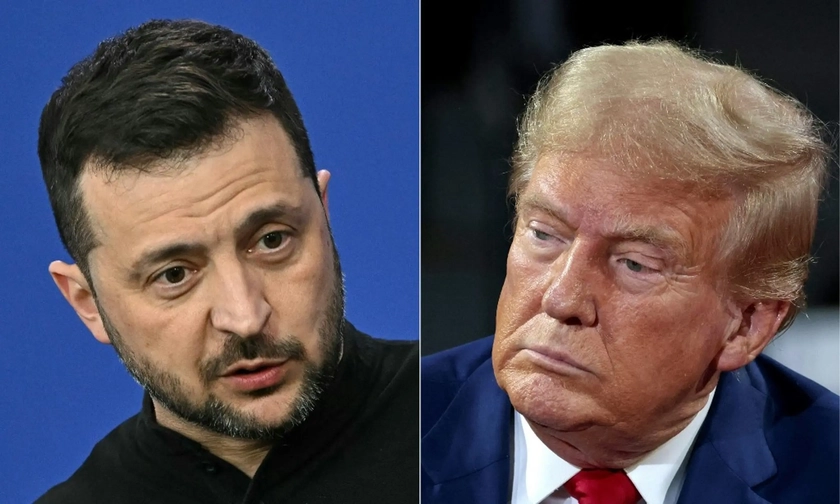More than 2,000 years before Russia invaded Ukraine, Seleucid despot Antiochus IV of Syria barged into Jerusalem and set about persecuting the Jews who lived there. He banned practices such as observing Shabbat, while his soldiers desecrated the Temple where the Jewish community prayed. Antiochus’ regime was known for its cruelty: In one particularly famous story, the Seleucids tortured and killed an old woman’s seven sons because they refused to eat pork, which in traditional Judaism is not kosher, and therefore proscribed.
- Access the most up-to-date war in ukraine update in the Kyiv Post’s daily news items today.
- Read the most current Ukraine news stories for today.
Finally, the Jews had had enough. Headed by Mattathias, the patriarch of the Maccabee family, and later by his son Judah, the Jews rose up in revolt against their Seleucid oppressors, defeating them in battle and restoring the Temple. Miraculously, a jar of oil in the Temple that was only expected to last one day lasted eight days when lit, giving rise to the Hanukkah celebrations that mark this story and a concomitant nickname: the Festival of Lights.
JOIN US ON TELEGRAM
Follow our coverage of the war on the @Kyivpost_official.
These accounts come to mind when looking back now – during the eight-day Hanukkah holiday – on Ukrainian President Volodymyr Zelensky’s inspiring leadership since Russian dictator Vladimir Putin ordered his troops to attack Ukraine. As a Jewish man with roots in Ukraine (my maternal grandfather and his family lived in Odesa), I see the similarities between Zelensky’s story and the Hanukkah tale, especially with regard to Judah Maccabee, the iconic leader of the family who bravely fought against a colonialist empire that sought to wipe out his culture. Indeed, the connection between Putin’s Russia and Antiochus’ Syria has never seemed so alike.

Realpolitik and Betrayal
For one, Zelensky and Judah share a religious tradition: Judaism. Plus, they’re both underdogs. The Maccabees faced a more powerful and numerous enemy, but Antiochus’ military might couldn’t defeat the Jewish resistance, which used tactics such as guerilla warfare against the Seleucids. Similarly, Putin’s once-vaunted forces have faltered against the outnumbered Ukrainians, who have combined their knowledge of the home terrain with their use of weaponry such as the portable Javelin to harry their opponent.
As commanders, Zelensky and Judah have much in common. Zelensky’s oratorical skills and charisma match those of the historical Maccabee, who would lead his soldiers in prayer before battle. Though Judah was a zealot who was very religious, and Zelensky isn’t, they are linked by their heritage and pride in their background. Zelensky’s strategic mind also stacks up well against his Maccabean counterpart’s, part of the reason why Judah was so successful as a general.
But the biggest similarity between Zelensky and Judah Maccabee is the oppression their people have faced. The Russian authorities’ torture of prisoners and attempts to destroy Ukrainian culture are reminiscent of the Seleucids’ efforts to wipe out the Jewish religion. As Antiochus did in his effort to Hellenize the Jews, the tyrannical Putin wants to bring all of his subjects under the umbrella of one dominant cultural mindset – Russia’s. As such, Ukraine, like the Jews did under the Maccabees, faces an existential threat.
The question is, will Ukraine’s story have a similarly happy ending?
In the ancient accounts retold on Hanukkah, there is a message for a current population besieged by hardship. Power shortages in Kyiv and other areas caused by the shelling from Putin’s depraved military are mirrored in the Seleucid army’s vandalism in the Jewish Temple, which left only one jar of oil for light. Could Ukraine experience a similar miracle where everything is illuminated once again?
There’s no doubt that Ukraine’s performance during the war has been miraculous, but it has also been due to careful strategic planning and solid execution by Zelensky and his well-trained military. Such efforts point to human capabilities rather than supernatural ones: the product of skill, experience, wisdom and intelligence from an outfit that wasn’t expected to put up a fight… just like the Maccabees. From a clinical standpoint, we must give credit where credit is due in both cases: to people, not the divine.
A comparison of Ukraine’s situation to that of the Jewish Maccabees is not wholly without differences. While Ukraine does have a sizable Jewish population, most citizens of the country are Christian, with the majority practicing Orthodox Christianity. Yet there is a universal takeaway from the Hanukkah story that transcends religious boundaries: Genocidal dictators can be defeated. The Maccabees did it in ancient times, and Ukraine can do it today.
Zelensky is a relatively humble individual who probably wouldn’t think of comparing himself to one of the great heroes of Hanukkah. I do, however, think we can make this comparison in good faith. Ukraine’s President has demonstrated that he is a modern-day Maccabee worthy of Judah, and he has the military victories, as well as the public support, to show for it.
How much this will carry past the holiday season as Russia continues to attack Ukraine is unclear. But it’s certain that Hanukkah – a Festival of Lights in a world whose main defender against Putin’s evil is so often in the darkness of blackouts – will be more meaningful this year than ever before.
Given Zelensky’s Maccabean, against-all-odds success, a miracle might not be so unlikely after all.
The views expressed are the author’s and not necessarily of Kyiv Post.
You can also highlight the text and press Ctrl + Enter












